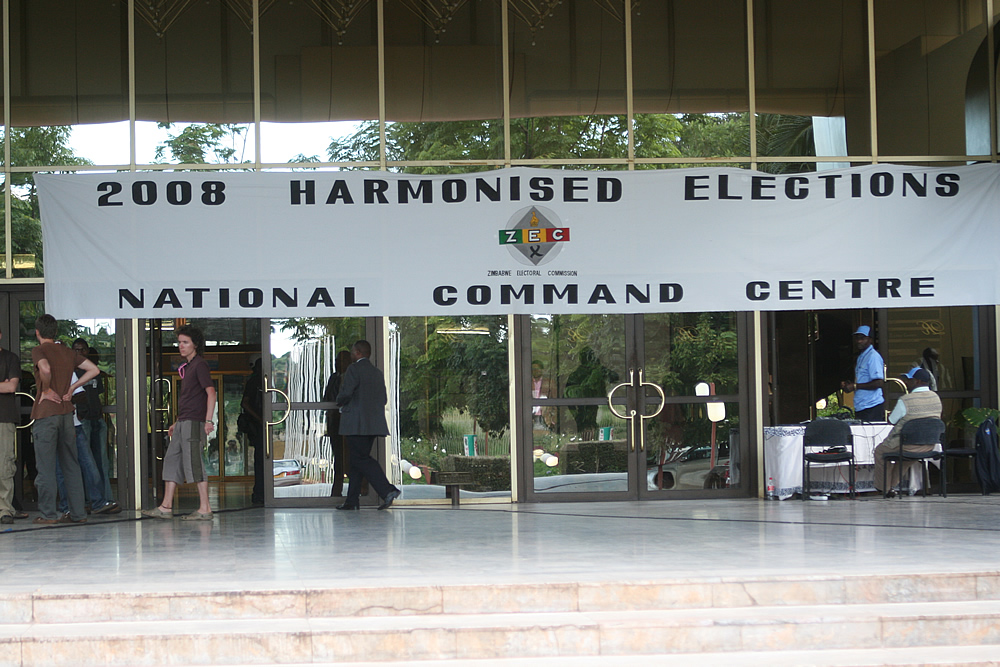Zimbabwe’s electorate is still anxiously awaiting the official results of the two-week old presidential polls, but the sudden closure of the Zimbabwe Electoral Commission’s (ZEC) national command centre has sparked "grave concern" over tampering and irregularities.
The centre had been operating out of a hotel in the capital, Harare, where the 29 March presidential, parliamentary and council election results were to be counted and announced. Having only announced parliamentary and senatorial election results, the ZEC secretly cleared out and locked the rooms it had been using.
"It is of grave concern that the ZEC command centre can just be closed and no communication officially conveyed to observers, party agents and candidates who have been waiting impatiently for the Presidential results," the Zimbabwe Electoral Support Network (ZESN), a non-governmental organisation promoting democratic elections, said in a statement on 9 April.
"Considering all the anxiety and confusion that has been caused by the delayed announcement of Presidential results, ZESN expected the ZEC command centre to be open and accessible to accredited observers until the Presidential election results are announced," the statement said.
The ZESN said the closure of the command centre closed the door of communication "between the electoral management body and interested stakeholders" creating "an incorrect assumption that, the election process is over".
The opposition party, the Movement for Democratic Change (MDC), led by Morgan Tsvangirai won the parliamentary vote, unseating the ruling ZANU-PF party that has been in power since independence from Britain in 1980. Within days of polling the MDC, has claimed its leader also won the presidential vote by the required 50 percent plus one vote, that if accurate, would negate the need for a run-off presidential ballot against incumbent, President Robert Mugabe.
ZANU-PF has already announced that it is geared for another round; the MDC however says it will not participate in the run-off because it has already won.
Disappointed by the ZEC’s disappearance, Timothy Meki, a college lecturer in Harare, told IRIN: "The peace that prevailed before and during the elections gave us so much hope but what is happening now causes one to think if holding elections in this country is worth it at all."
Meki said he feared the move would allow the ZEC "to doctor the results - the next thing we will hear is that ballots and forms that are being used to verify results are missing. How will the opposition manage to argue its case that it won in the absence of those documents? Why should ZEC wait for a court to tell to do what it set out to do in the first place?"
The ZEC’s new location, and ballot papers and other records, was still unclear. In an interview with New ZIANA, a state-run news agency, ZEC’s deputy chief elections officer Utoile Silaigwana said the body had only scaled down operations and said there was no need to keep equipment at the national command centre because the presidential results issue had been taken to court.
The MDC petitioned the High Court to compel ZEC to immediately announce the results but a judgement will only be made on 14 April. ZEC made a public statement saying it would await the decision of the court to release the outcome.
fm/tdm/go
This article was produced by IRIN News while it was part of the United Nations Office for the Coordination of Humanitarian Affairs. Please send queries on copyright or liability to the UN. For more information: https://shop.un.org/rights-permissions





